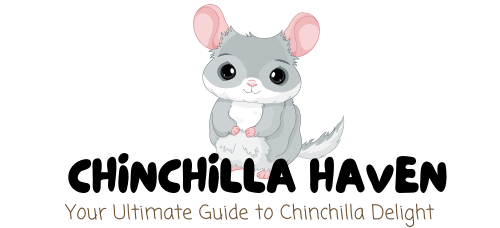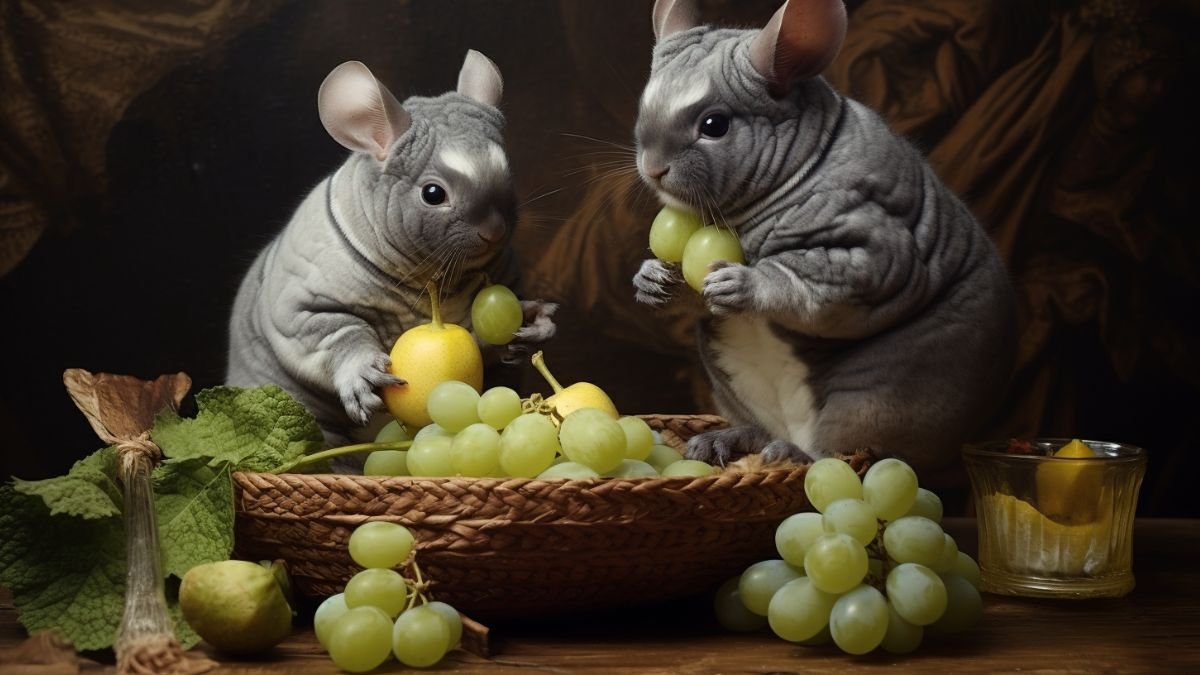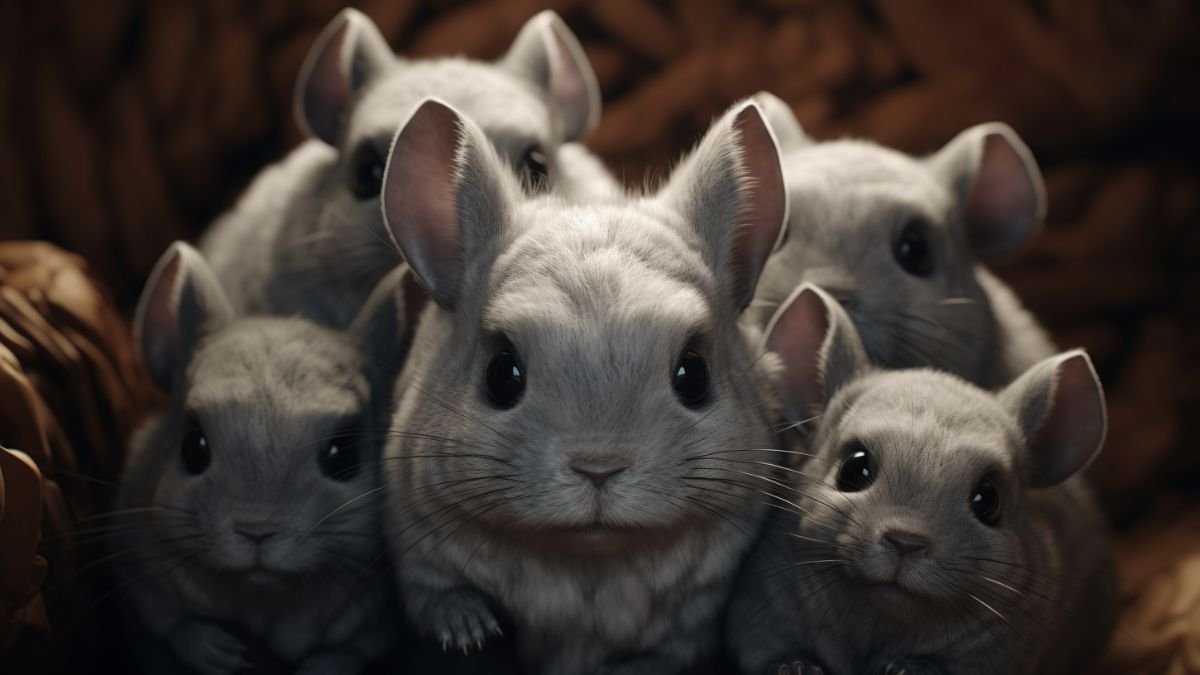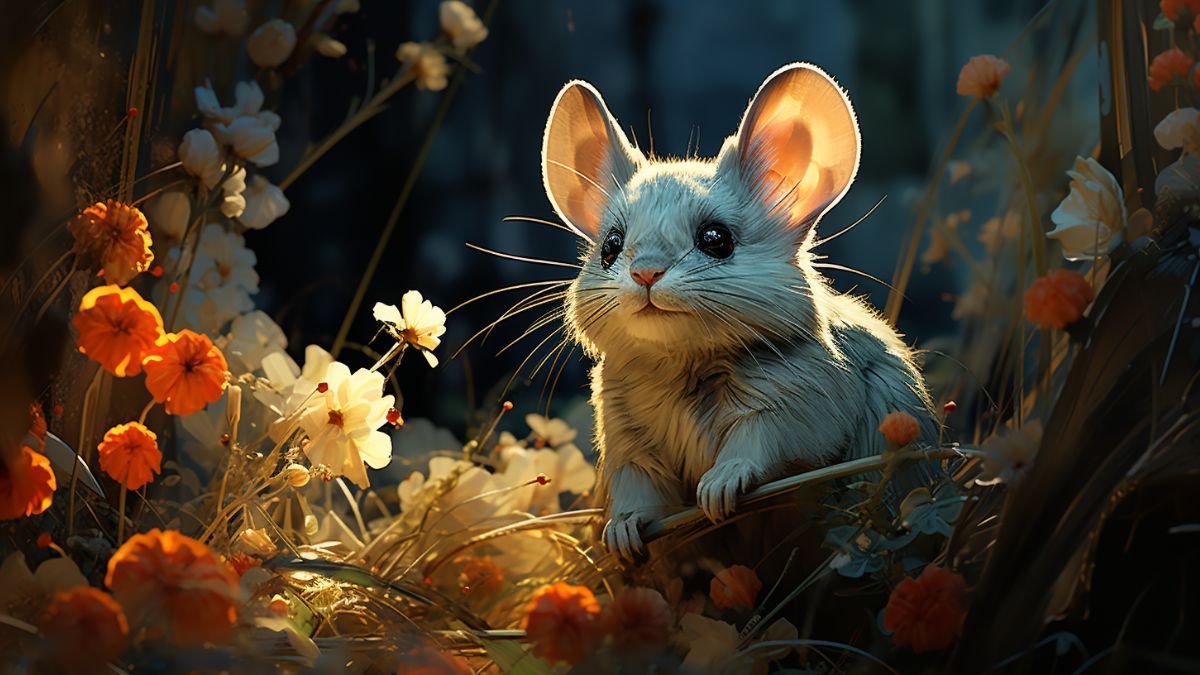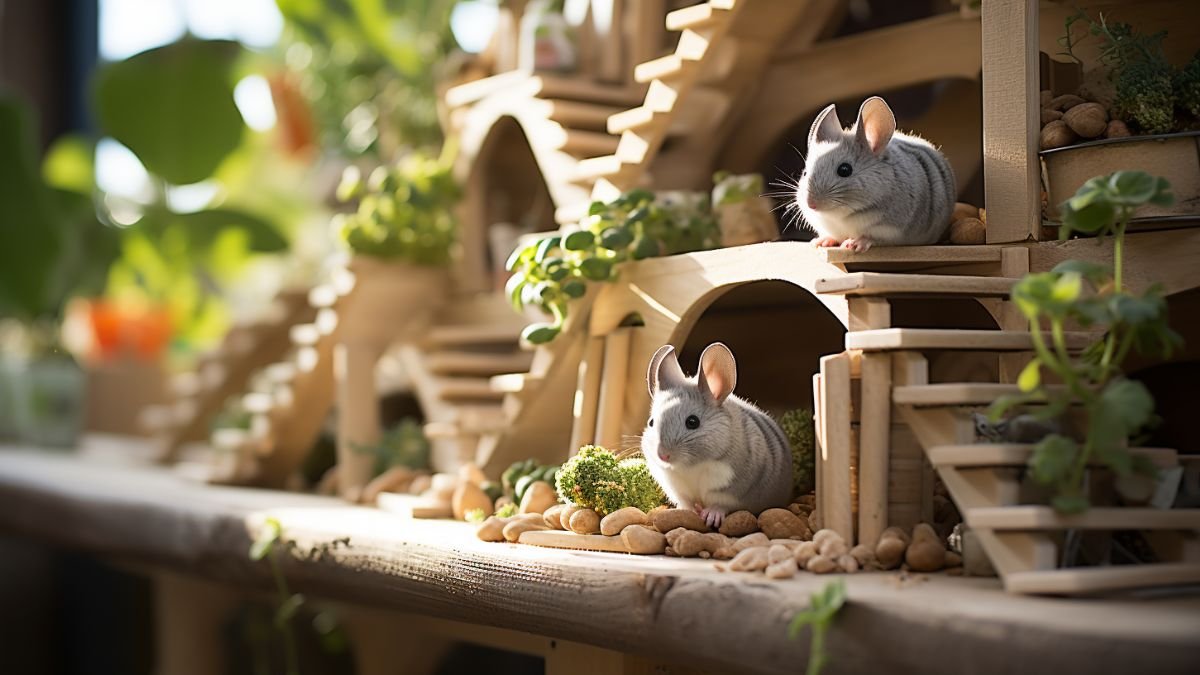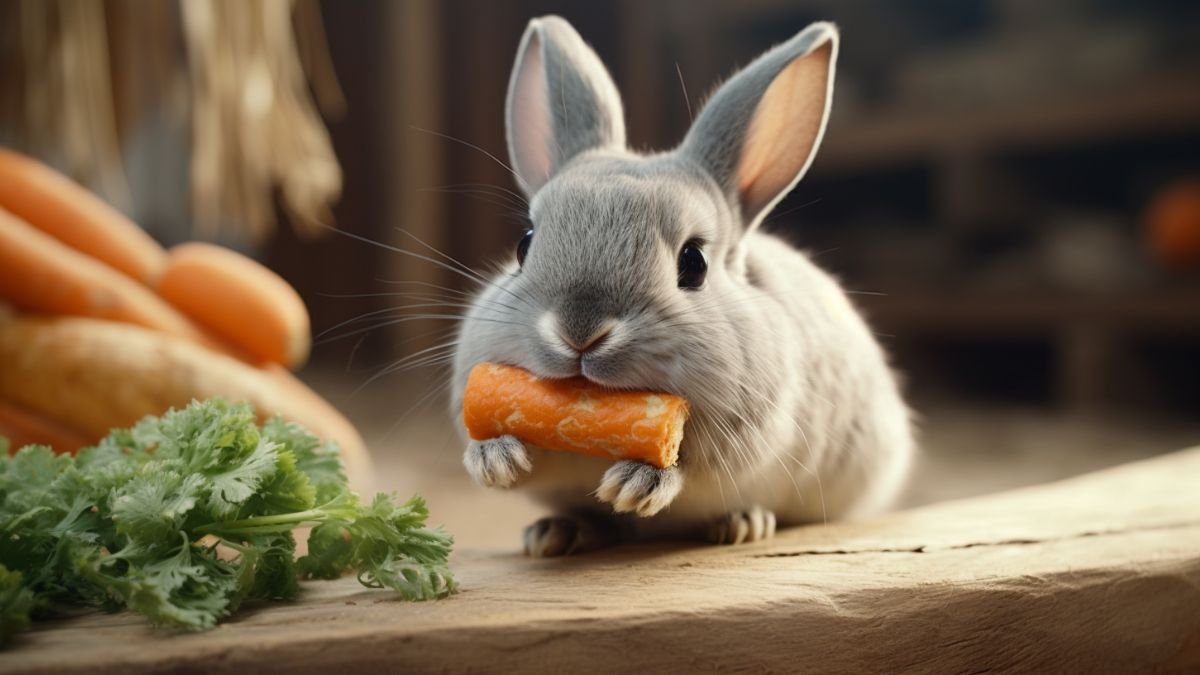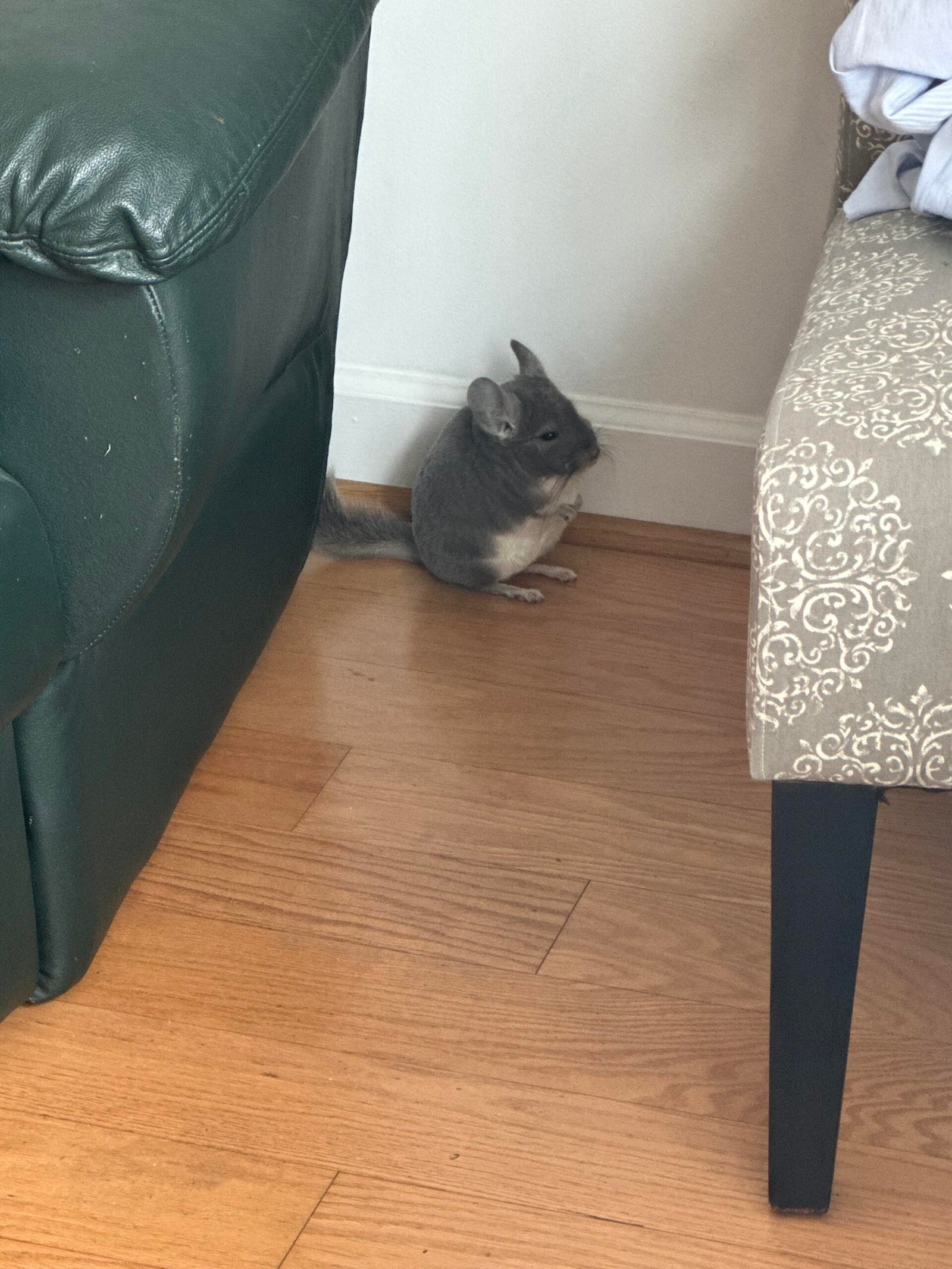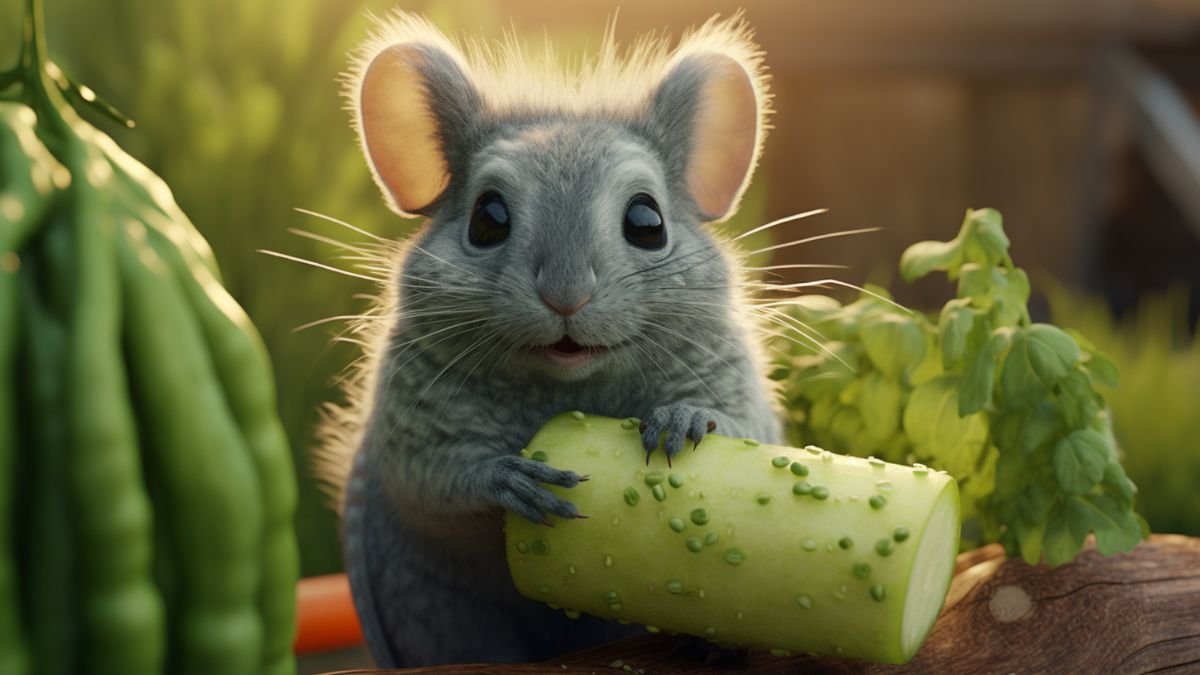
If you’re a chinchilla owner, you may find yourself wondering about the dietary needs of these adorable furry creatures. Chinchillas have specific dietary requirements, and providing them with a balanced diet is essential to ensure their health and well-being. One common question that arises is whether chinchillas can eat cucumbers. Let’s explore this topic and shed some light on whether cucumbers are safe for your chinchilla.
The answer is yes, chinchillas can eat cucumbers, but there are a few essential considerations to remember. Cucumbers are low in calories and contain a high water content, making them a refreshing treat for your chinchilla during hot summer days. However, moderation is essential when it comes to feeding cucumbers to your pet.
Cucumbers should be given as an occasional snack rather than a staple in a chinchilla’s diet. While they offer some nutritional benefits, such as vitamins A and C, chinchillas primarily require a fiber-rich diet. Feeding too many watery vegetables like cucumbers can lead to digestive upset and diarrhea in chinchillas. Therefore, it’s crucial to offer cucumbers sparingly and in small quantities.
To maintain a healthy diet for your chinchilla, prioritize feeding them hay, specifically Timothy’s hay, which is the foundation of their diet. This roughage aids in proper digestion and wears down their continuously growing teeth. Alongside hay, you can provide them with high-quality chinchilla pellets formulated to meet their nutritional needs.
In addition to hay and pellets, chinchillas benefit from small portions of fresh vegetables and fruits. Introduce new foods gradually, and observe how your chinchilla reacts to each type. This will help you identify any potential allergies or digestive issues.
chinchillas can eat cucumbers, but offering them in moderation is crucial. While cucumbers provide hydration and some nutrients, they should not replace the main components of a chinchilla’s diet, such as hay and pellets. By providing a well-balanced diet, you’ll ensure that your chinchilla stays healthy and happy for years.
Remember to consult with a veterinarian experienced in chinchilla care if you have any specific concerns or questions about your chinchilla’s diet.
Chinchillas and Cucumbers: A Comprehensive Guide
Are you curious about chinchillas and their relationship with cucumbers? These adorable furry creatures have captured the hearts of many pet enthusiasts, and their affinity for cucumbers adds an exciting twist to their diet. This comprehensive guide will explore the intriguing world of chinchillas and their interaction with these refreshing green vegetables.
Firstly, let’s address the nutritional aspect. Chinchillas are herbivores, and their natural diet mainly consists of grasses, hay, and specific vegetation types. While cucumbers might seem like a suitable addition to their menu, it’s essential to exercise caution. Cucumbers have a high water content, leading to digestive issues in chinchillas if consumed excessively. Therefore, moderation is key when introducing cucumbers into their diet.
When offering cucumbers to your chinchilla, following specific guidelines is essential. Start by thoroughly washing the cucumber to remove any potential pesticides or harmful substances. Then, slice it into small, bite-sized pieces to prevent choking hazards. Remember to remove the seeds as well, as they can be challenging for chinchillas to digest.
Now, you may wonder why chinchillas enjoy cucumbers if they can be potentially problematic. Well, the answer lies in their instinct for exploration. Chinchillas are curious animals, and introducing new foods provides mental stimulation and excitement. Offering cucumbers as an occasional treat can be a source of enrichment for your chinchilla, keeping them engaged and entertained.
However, it’s crucial not to overindulge your chinchilla with cucumbers. Too much cucumber intake can cause diarrhea and disrupt their delicate digestive system. Additionally, chinchillas require a balanced diet to maintain optimal health. This means that while cucumbers can be offered occasionally, they should never replace the primary elements of their diet, such as hay and fresh water.
chinchillas and cucumbers can coexist harmoniously but with certain precautions. By understanding their nutritional needs and practicing moderation, you can safely introduce cucumbers as a delightful treat for your chinchilla. Remember, a happy and healthy chinchilla receives a well-rounded diet and plenty of love and care.
Nutritional Benefits of Cucumbers for Chinchillas

Are you wondering about the nutritional benefits of cucumbers for chinchillas? Well, you’re in the right place! Cucumbers are refreshing and delicious for humans and can also be a healthy addition to your chinchilla’s diet. These small furry creatures enjoy snacking on various fruits and vegetables, and cucumbers are one of their favorites.
First and foremost, cucumbers are low in calories, making them an excellent choice for chinchillas that may need to shed a few pounds. Chinchillas are prone to obesity, so providing them with low-calorie snacks is essential to their overall health and well-being. Furthermore, cucumbers have a high water content, which helps keep your chinchilla hydrated, especially during hot summer months.
Besides being hydrating and low in calories, cucumbers are also packed with vitamins and minerals beneficial for chinchillas. They contain vitamin C, an essential nutrient that supports their immune system and aids in collagen production. Vitamin C is crucial for chinchillas since they cannot synthesize it independently.
Moreover, cucumbers provide chinchillas with a good amount of dietary fiber. Fiber is essential for maintaining a healthy digestive system, preventing constipation, and promoting regular bowel movements. Including cucumbers in your chinchilla’s diet can improve their overall digestive health and prevent gastrointestinal issues.
When feeding cucumbers to your chinchilla, it is essential to remember a few things. Always wash the cucumber thoroughly to remove any pesticides or dirt that may be present on the skin. It is recommended to offer cucumbers as a treat or supplement to their regular pellets and hay rather than as a primary source of nutrition. Introduce cucumbers gradually into their diet to avoid digestive upset, and remember to remove any uneaten portions after a few hours to maintain cleanliness.
cucumbers can be a nutritious and hydrating addition to your chinchilla’s diet. With their low-calorie content, high water content, and rich vitamin and mineral profile, cucumbers offer numerous benefits for these adorable furry friends. So go ahead and treat your chinchilla with a slice of cucumber, and watch them nibble away with delight!
Can Chinchillas Safely Consume Cucumbers?
Chinchillas, those adorable little furballs, have quite a selective diet. As a responsible chinchilla owner, you probably wonder if cucumbers are a safe addition to their menu. Well, let’s dive into the crunchy details and find out!
The short answer is yes, chinchillas can safely consume cucumbers. However, there are a few things you need to keep in mind before treating your furry friend to this refreshing veggie snack.
Firstly, moderation is key. While cucumbers are generally safe for chinchillas, they should be given sparingly as an occasional treat rather than a regular part of their diet. Chinchillas have sensitive digestive systems, and too much of any new food can upset their tummy. So, it’s best to introduce cucumbers gradually and observe how your furry friend reacts.
When offering cucumbers to your chinchilla, remember to wash them thoroughly and remove the seeds. Organic cucumbers are preferable to minimize the risk of pesticides. Slice the cucumber into small, bite-sized pieces to make it easier for your chinchilla to munch on.
Here’s an interesting fact: Did you know that chinchillas and humans have something in common regarding cucumbers? Like us, chinchillas are mostly water, and cucumbers are a hydrating snack for them, too! It’s like a cool and refreshing treat on a hot summer day!
However, it’s important to note that not all chinchillas are the same. Just like people have different preferences and tolerances, individual chinchillas may react differently to cucumbers. Some chinchillas may enjoy the taste and texture, while others may not show much interest. It’s all about understanding your chinchilla’s preferences and adjusting accordingly.
chinchillas can safely munch on cucumbers as an occasional treat, but remember to offer them in moderation. Enjoy watching your little buddy nibble on this hydrating veggie, and keep an eye out for any signs of digestive issues. Now, share a refreshing cucumber slice with your chinchilla and see how it brings a smile to their tiny face!
The Risks of Feeding Cucumbers to Chinchillas
Do you know that feeding chinchillas cucumbers can harm their health and well-being? While cucumbers might seem harmless and nutritious for humans, they are not an ideal food choice for these small furry creatures. Let’s dive into the reasons why.
Firstly, cucumbers have a high water content, which can lead to digestive issues in chinchillas. These adorable rodents originate from arid regions of South America, where water is scarce. Their digestive systems are adapted to a diet low in moisture, mainly dry grasses and hay. When chinchillas consume foods with high water content, such as cucumbers, it can disrupt the delicate balance in their digestive tract, potentially causing diarrhea or bloating.
Secondly, cucumbers contain a fair amount of sugar and carbohydrates. Chinchillas have specialized digestive systems that are designed to process fibrous foods. Their diet should primarily consist of grasses, hays, and pellets specifically formulated for their nutritional needs. Introducing sugary or starchy foods like cucumbers can upset their digestive system and lead to obesity, dental problems, or even diabetes.
Furthermore, cucumbers may also contain pesticides or other chemicals if they are conventionally grown. Chinchillas are highly sensitive to toxins; even small amounts can adversely affect their health. Ensuring that any food given to chinchillas is organic and free from harmful substances is crucial.
To keep your chinchilla healthy and happy, it is best to stick to a diet mimicking natural food sources. Offer them a variety of fresh hay, high-quality pellets, and occasional treats specifically made for chinchillas. If you’re unsure what foods are safe for your furry friend, consult a veterinarian with experience in exotic pets.
Remember, chinchillas have unique dietary requirements, and a proper diet is essential for their overall well-being. By avoiding cucumbers and opting for a chinchilla-specific diet, you can help ensure that your little companion stays healthy and lives a long, happy life.
